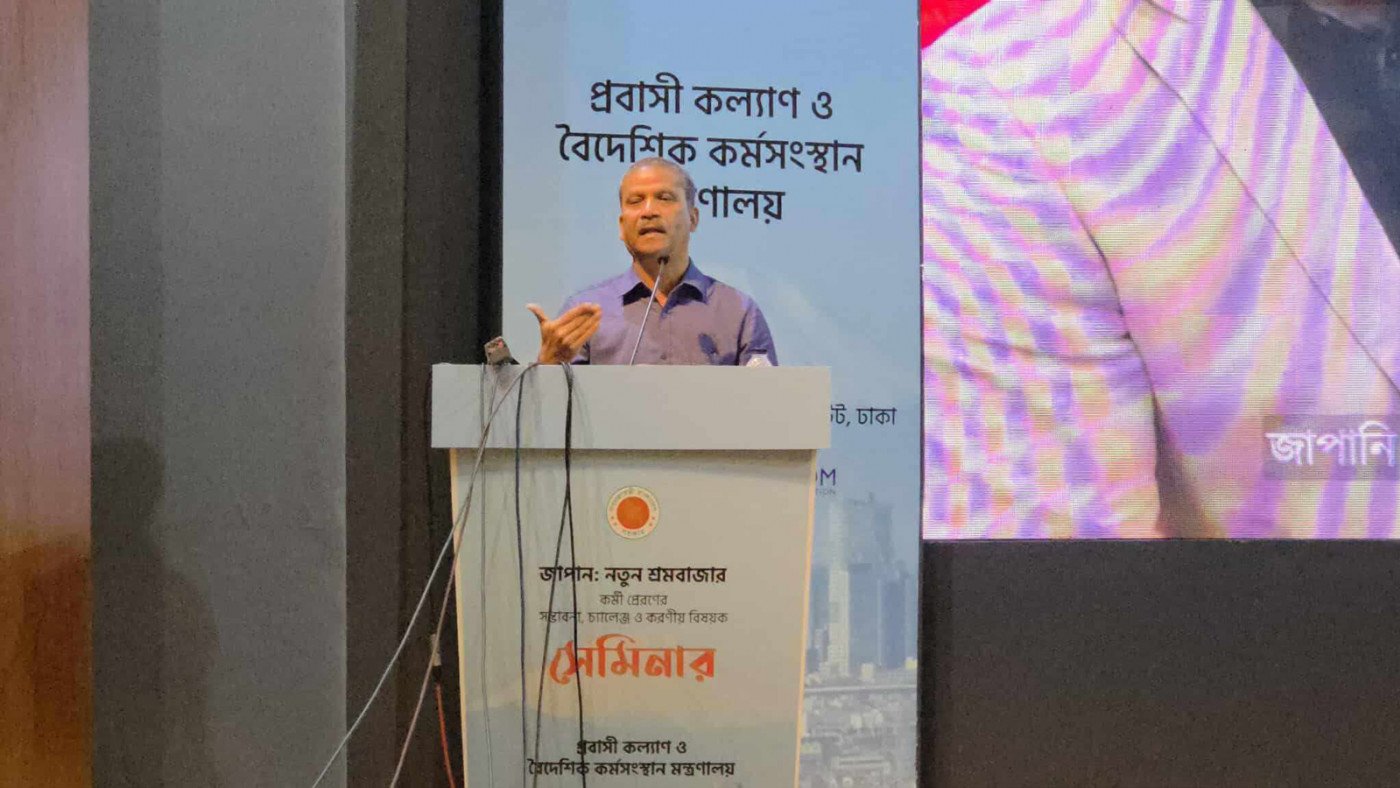Malaysia to recruit only 30,000-40,000 Bangladeshi workers: Asif Nazrul


Expatriate Welfare and Overseas Employment Adviser Asif Nazrul on Wednesday said, there is a hype going around that Malaysia will recruit 1 to 1.2 million workers, but in reality, the country will recruit no more than 30,000 to 40,000 workers from Bangladesh in the coming year.
Speaking at a seminar titled "Japan's Labour Market: Opportunities and Challenges" organised by the Ministry of Expatriates' Welfare and Overseas Employment at the International Mother Language Institute, Asif Nazrul addressed concerns surrounding Malaysia's recruitment process.
He explained, "The previous government had a formal agreement with Malaysia, where they would provide a list of recruiting agencies, and we would make the final selection. This process is what we refer to as the 'syndicate.'"
"Now that we are in charge, there is pressure to dismantle the syndicate. But doing so requires a revision of the agreement which we cannot impose unilaterally. It has to be negotiated," he said.
"If Malaysia refuses to amend the agreement, we face two options - either proceed with sending workers through the proposed 25, 50, or 100 agencies, or send no workers at all. If I allow recruitment through the syndicate, I will be accused of supporting it. But if we don't send anyone, 40,000 workers could lose opportunities, impacting 100,000 to 200,000 families," he added.
Regarding Japan's labour market, Asif Nazrul noted that while there is demand for workers, Bangladesh faces challenges in meeting the required skill levels.
"Most of our workers are unskilled. While many are learning Japanese, they still fall short of the necessary standards. The only solution is to train workers based on Japan's labour needs," he added.
He shared that the government has established a dedicated Japan cell, with a website soon to be launched.
Plans are also underway for public-private partnerships to enhance training efforts, said the adviser.
"We are encouraging Japanese entrepreneurs to manage our Technical Training Centres (TTCs). For example, we have already handed over the Manohardi TTC to a Japanese partner, instructing them to develop it as they see fit."


